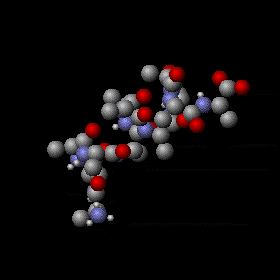
Back فيزياء جزيئية Arabic Molekulyar fizika Azerbaijani Малекулярная фізіка Byelorussian Молекулна физика Bulgarian আণবিক পদার্থবিজ্ঞান Bengali/Bangla Física molecular Catalan Molekulová fyzika Czech Молекулăсен физики CV Ffiseg foleciwlaidd Welsh Molekülphysik German

Molecular physics is the study of the physical properties of molecules and molecular dynamics. The field overlaps significantly with physical chemistry, chemical physics, and quantum chemistry. It is often considered as a sub-field of atomic, molecular, and optical physics. Research groups studying molecular physics are typically designated as one of these other fields. Molecular physics addresses phenomena due to both molecular structure and individual atomic processes within molecules. Like atomic physics, it relies on a combination of classical and quantum mechanics to describe interactions between electromagnetic radiation and matter. Experiments in the field often rely heavily on techniques borrowed from atomic physics, such as spectroscopy and scattering.